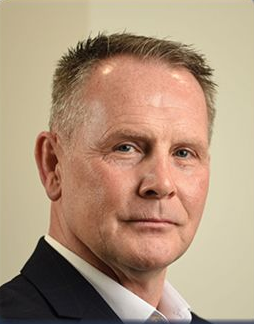In the report the NIC has called on the government to “urgently implement” waste legislation needed to achieve a 65% recycling rate by 2035, as well as limit the building of new EfW plants without carbon capture.
The second national infrastructure assessment – a five yearly review conducted by the NIC– sets out a “programme of transformation” for the country’s economic infrastructure sectors, setting out recommendations for transport, energy, water and wastewater, flood resilience, digital connectivity, and solid waste (see letsrecycle.com story).
Recommendations
Among the core recommendations mentioned in the report, the government was urged to “deliver a more sustainable waste system by urgently implementing reforms to meet the 65% recycling target by 2035, and create “stronger incentives’ for investment in the recycling infrastructure”.

This was welcomed by Jacob Hayler, the executive director of the ESA, who said: “For more than five years now, a lack of policy clarity has largely put new recycling infrastructure development on pause and the current uncertainty in Westminster facing our sector does little to unlock the billions in circular economy investment that our members stand poised to make – given the right conditions.”
Mr Hayler however was not in favour of the recommendation that new EfW plants should be banned unless fitted with carbon capture and storage (CCS), saying: “It is wrong to call for a ban on all new energy recovery capacity which does not utilise CCS specifically, not least because CCS is not the only way of decarbonising these essential operations and will only be viable in certain situations.
“Energy recovery remains the lowest-carbon solution for dealing with the nation’s residual waste and, in accordance with our sectoral 2040 net-zero target, EfW operators are already developing credible decarbonisation plans, for example, by deploying CCS where and when viable; decarbonising waste feedstocks; delivering heat networks and improving efficiency.”
Mr Hayler adds: “Our sector remains acutely aware of the need to ensure waste treatment capacity is balanced against waste arisings and, in the absence of long-term policy clarity, continues to invest where necessary and in a pragmatic way to ensure we can continue to safely manage, and make the most of, the nation’s waste.”
EfW

On energy from waste, the NIC outlined that the amount of waste treated at EfW plants without carbon capture and storage will need to reduce by around a quarter by 2035 and by around 80% by 2050.
The Commission’s analysis “suggests there is already sufficient EfW operating capacity in place or in the pipeline to avoid the need for new energy from waste which isn’t carbon capture ready”.
It noted however that at the same time, recycling capacity “needs to increase and the private sector needs encouragement to invest in new recycling plants”.
This was backed by Mike Maudsley, the chief executive of EfW operator Enfinium, who said the company “welcomes the recommendations of the Second National Infrastructure Assessment.”
He said: “As the report highlights, installing carbon capture technology on energy from waste facilities can provide vital carbon removals to support Net Zero and help communities decarbonise.
“That is why it is right for the Commission to call for an end to new energy from waste facilities without carbon capture, as well as further measures to increase recycling rates and remove plastic from the waste stream.”
‘Practical’
John Scanlon, the chief executive officer for Suez recycling and recovery UK, said the company welcomes the call for stronger incentives for infrastructure and the ban on future EfW plants without carbon capture, though he warned of the need to be “practical”.
Mr Scanlon said it is important “there are no future local authority contracts to energy from waste plants without carbon capture, that there is an appropriate alternative, as it’s essential we avoid sending waste to landfill.”
He added: “The report is a clear call to action to government to now move at pace with implementing crucial policy reforms such as simpler recycling, so we can deliver on EPR reforms effectively, while ensuring alignment with broader government Net Zero policy.
“It’s essential that default Defra policies and DESNZ policies need to be aligned on timescale, especially the UK Emissions Trading Scheme (UK ETS), to allow us to accelerate our efforts in the decarbonisation of our operations. Clear communication and legislation from Government will allow our sector to take the critical next step to invest in vital services and infrastructure, and ultimately help us to reduce our carbon emissions and to reduce the carbon impact of managing our customers’ waste.”
‘Accelerate progress’
Owen Michaelson, the chief executive of Encyclis said the report will “accelerate progress on the UK’s most urgent priorities.”

He noted that for the UK to meet its net zero targets, “it is crucial that the potential of energy recovery to accelerate decarbonisation is fully harnessed”.
“The latest National Infrastructure Assessment highlights the urgent need to accelerate progress on the decarbonisation of heat. At Encyclis, we are working to support the roll-out of district heat from our energy recovery facilities,” he said.
“However, this step change in how we heat our homes, and our public buildings cannot be delivered by the private sector alone. The government has a critical role to play in pump priming the transport pipelines and heat networks needed to link the sources of heat with the end users, while the users of the heat progressively sign up to using this new low carbon heat source.
“We fully support industrial decarbonisation and CCS will have a crucial role in the UK’s journey to net zero, but successful outcomes will depend on continuing partnerships with government. Encyclis is leading one of the eight projects within the first phase of the DESNZ Cluster Sequencing Programme. Energy-from-waste accounts for 25% of that programme at present.”










Subscribe for free